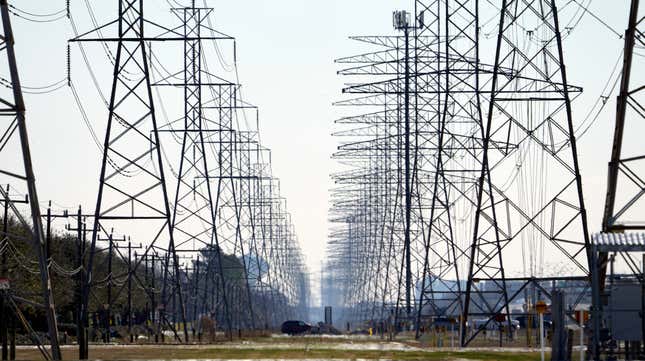
The last standing member of Texas’s Public Utility Commission handed in his resignation on Tuesday following a report that he assured out-of-state investors who made big profits from last month’s blackouts that he was working to make sure they could keep their money.
Texas Monthly obtained a recording of a March 9 call between Arthur D’Andrea, the only member of the state PUC who had not yet resigned following the February crisis, and out-of-state energy investors. (The call, naturally, was hosted by Bank of America Securities and was not open to the public or press.) The blackouts caused dozens of deaths, power outages for millions across the state, and an enormous financial hole that means consumers will be facing inflated bills for years to come.
D’Andrea was part of the state body appointed by the governor that is supposed to regulate the state’s grid operator. Theoretically, he’s supposed to be part of a nonpartisan body that makes sure that consumers pay fair prices for energy. But during the call, D’Andrea took pains to make sure that out-of-state investors could feel safe that they’d keep the money they earned during this time.
“I apologize for the uncertainty,” D’Andrea told investors on the call.
One of the issues D’Andrea discussed on the call was the issue of repricing energy in the state, and he came down on the side of investors on the issue. The blackouts and freezing temperatures in February drove prices for energy through the roof. To make matters worse, the state’s grid operator, ERCOT, artificially inflated prices during the crisis and overcharged energy companies some $16 billion during the blackouts. The Texas legislature is currently debating a bill that would retroactively reprice energy from the crisis and correct ERCOT’s overcharges.
The surge in prices was terrible for electricity providers, many of which are facing bankruptcy, and customers, some of whom got slammed with outrageous bills. But it was great business for big traders. Bank of America (which, again, was hosting the call D’andrea was on) reportedly made hundreds of millions of dollars trading on the energy market after the blackouts, thanks to the surge in prices. (Don’t worry, though. They gave $1 million to support Texas communities’ recovery from the storm.) Goldman Sachs and Morgan Stanley, two other big energy traders, are also looking at potential profits in the neighborhood of $200 million each just from the blackouts that led to at least 70 deaths. Capitalism is totally working, you guys!
The Texas government may, however, step in. Naturally, entities that made lots of dough on paper on high energy prices aren’t too excited about the potential government interventions that could whittle away at their profits that include everything from forgiving customers’ utility bills all the way up to forcing profiteers to give some of the money they made back. Repricing energy is one of the biggest ways to help utility ratepayers, though it would also lead to money flowing out of investor’s hands. D’Andrea, who has been vocal about how the PUC’s hands are tied on repricing, was quick to tell investors he was working hard to protect their money.
“I took that first step to tip the scale as hard as I could in favor of it being resolved…to provide some calming force,” D’Andrea said on the call about repricing. “It’s a contentious political issue. The best I can do is put the weight of the commission in favor of not repricing.”
His presence on this call carried extra weight; two of his fellow commissioners have resigned in recent weeks following the crisis. D’Andrea was only appointed chair of the PUC in March.
“I went from being on a very hot seat to having one of the safest jobs in Texas,” D’Andrea said to the investors. “I think it’s just going to be me for a while.”
Awhile, it turned out, was a week. Following the Texas Monthly report, D’Andrea handed in his resignation on Tuesday evening. Seems like big banks may have to find another utility champion to pull the energy strings for them in Texas.